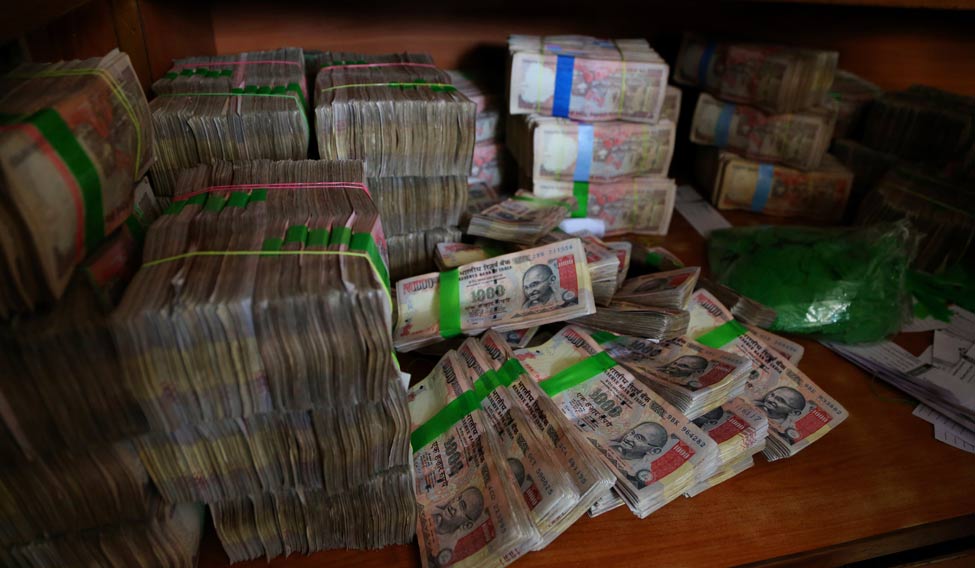Hoarding has never been as serious a business as it is today. Hoarding activities peaked in the aftermath of Prime Minister Narendra Modi demonetising the two high denomination currency notes of Rs 500 and Rs 1000.
Though demonetisation was meant to target the illegal hoarding of black money, it has sparked off a new wave of money hoarding by the aam aadmi. People are withdrawing cash, and not spending it, eventually obstructing cash flow in the economy.
“People are withdrawing cash and keeping it with them. They are not spending the cash they have with them, which is what we dub as hoarding. The problem with this approach is that money is prevented from being in circulation as it is being hoarded by the public,” said RBI principal adviser Alpana Killawala. Killawala added that if this is what the public, at large, ends up doing, we have a real problem at hand. “Then however much we print [currency cash], that may not be enough,” said Killawala.
RBI deputy governor R. Gandhi had said there was adequate supply of notes and “hoarding of notes helps nobody's cause.” In one of its press releases dated November 17, the RBI addressed the public asking them not to panic and not to hoard new currency notes.
Pitted against this kind of money hoarding by the public, a wide network of dealers are helping convert hoarded black money into white. Even as two Axis Bank employees have been detained for 'helping' black money hoarders convert their wealth into white, another parallel charge against the bank has been levelled. It is being probed if a section of the bank's employees, at the managerial levels, have illegally converted old notes for a designated commission.
The Enforcement Directorate and the Income Tax department have been authorised to swoop down on hoarded new currency cash across the country. Both ED and the IT department are assisted by the FinMin's secretive Financial Intelligence Unit. The Central Economic Intelligence Bureau,too, is part of the law enforcement drive aimed at flushing out black money.
It has been reported that during one of the many raids conducted by the Income Tax department,the agency unearthed over Rs 70 crore in cash from Chennai in the form of new hoarded currency notes.
IT sources said that so far the department, aided by police forces mainly of four south Indian states, has confiscated close to Rs 100 crore of hoarded cash. Two businessmen based out of Chennai are being probed with regard to the seizures. Another two businessmen in Ahmedabad are under the scanner of the financial intelligence agencies. Those targeted are traders, gem and gold merchants and a section of realty agents.
While the current spate of seizures was being carried out mostly in the southern pockets of the country, they have been just few in Mumbai, the country's financial capital. Sources said synergy between the police with officials belonging to the ED and Income Tax departments is the reason behind low numbers in Mumbai. So far raids have yielded just over Rs 120 crore in cash in Mumbai and Rs 1,500 crore worth undisclosed income detected by the Income Tax according to CBDT chairman Sushil Chandra.
While the IT department is concerned primarily with the “untaxed black money”, the ED is simultaneously looking into the violations of the Foreign Exchange Management Act and the Prevention of Money Laundering Act. The two respective acts look into and fix if money is being laundered through hawala or other allied means.
Commenting on black money hoarders choosing to deport bulk cash into bank accounts, union revenue secretary Hasmukh Adhia said that by merely depositing money into bank accounts does not per se turn black money into white. It happens only when the Income Tax department levies a tax on money and in the primary instance access the source of black money.
A senior ED officer said the agency has been very discrete when it comes to raiding premises where new currency notes were being hoarded. That apart, the ED is also looking into if hoarded money is getting laundered for illegal activities. But for the time being there is no coordination between various financial intelligence and enforcement agencies at the central level.
It has been reported that about 72,000 dormant accounts across public and private sector banks have jumped back to life during the first 17 days after the demonetisation announcement.





